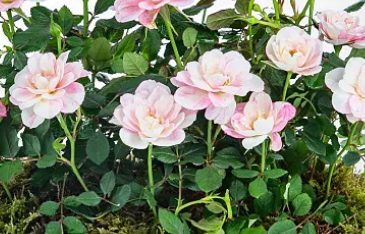
Essential Spring Gardening Advice
As winter fades away, avid gardeners eagerly anticipate the arrival of spring, a season that breathes life back into the earth. Spring gardening is a delightful and rejuvenating activity that sets the stage for a vibrant and flourishing garden throughout the warmer months. In this article, we’ll explore essential spring gardening advice to help you make the most of this season and ensure a successful and bountiful garden.
Prepare the Soil
The foundation of a thriving garden lies in healthy soil. Begin by clearing away debris and weeds that may have accumulated over winter. Loosen the soil using a garden fork to improve aeration and drainage. Consider adding organic matter, such as compost or well-rotted manure, to enhance soil fertility and structure.
Prune and Trim
Spring is the ideal time to prune and trim shrubs, trees, and perennials. Remove dead or damaged branches, shape the plants for aesthetics, and encourage new growth. Be cautious not to prune too late into the season, as it may interfere with the budding process.
Start Seeds Indoors
Gain a head start on the growing season by starting seeds indoors. Planting seeds for vegetables, herbs, and flowers in trays or containers allows them to develop into healthy seedlings before transplanting them outdoors. Ensure proper light, temperature, and moisture levels to promote robust growth.
Plan Your Garden Layout
Take the time to plan the layout of your garden. When doing your spring gardening, consider factors such as sunlight exposure, soil conditions, and the mature size of your plants. Planning ahead will help you arrange your garden in a way that optimizes space and ensures each plant receives the necessary nutrients and sunlight.
Clean and Maintain Garden Tools
Well-maintained tools are essential for successful spring gardening. Clean and sharpen your pruners, shears, and other tools to ensure efficiency and prevent the spread of diseases between plants. Inspect hoses and irrigation systems for any damages and replace or repair as needed.
Address Weeds Early
Weeds can quickly take over a garden if not addressed promptly. Tackle weeds early in the season to prevent them from competing with your plants for nutrients and moisture. Consider using natural mulch to suppress weed growth and conserve soil moisture.
Fertilize Thoughtfully
As your plants emerge from winter dormancy, they may benefit from a boost of nutrients. Apply a balanced fertilizer to provide essential elements for growth. However, avoid over-fertilizing, as it can lead to excessive foliage at the expense of flower and fruit production.
Protect Against Pests
Keep a watchful eye for early signs of pests and take preventative measures. Consider introducing beneficial insects, like ladybugs or predatory nematodes, to control pest populations naturally. Use organic insecticides sparingly, ensuring they target specific pests while preserving beneficial organisms.
Plant Cool-Season Vegetables
Spring is an excellent time to plant cool-season vegetables such as lettuce, spinach, peas, and radishes. These crops thrive in the mild temperatures of spring and can be harvested before the heat of summer sets in.
Mulch for Moisture and Weed Control
Apply a layer of mulch around your plants to conserve soil moisture, suppress weeds, and regulate soil temperature. Organic mulches like straw or wood chips also contribute to soil health as they decompose over time.
Spring gardening is a time of renewal and growth, offering a fresh start for your garden after the winter months. By following these essential tips, you can create a foundation for a flourishing and vibrant garden throughout the spring and beyond. Embrace the beauty of the season and enjoy the rewards of your efforts as your garden bursts into life with colourful blooms and abundant harvests. Happy gardening!
